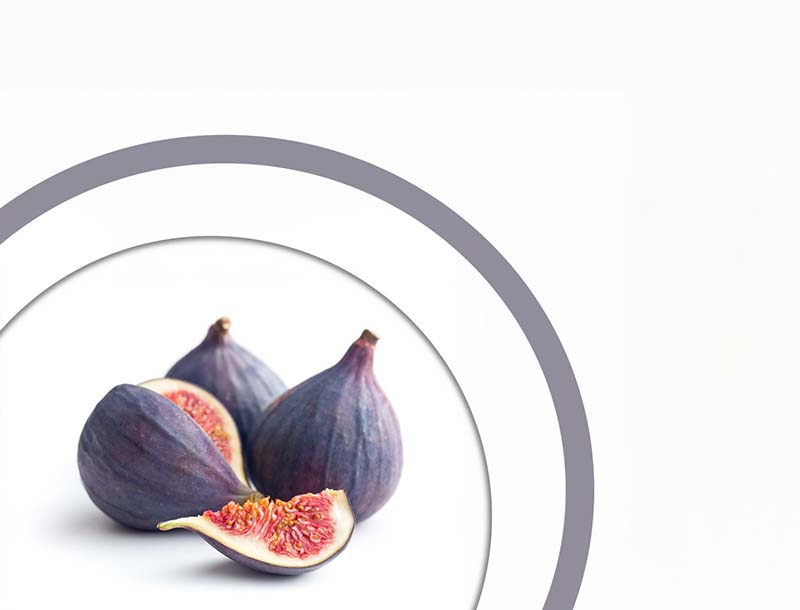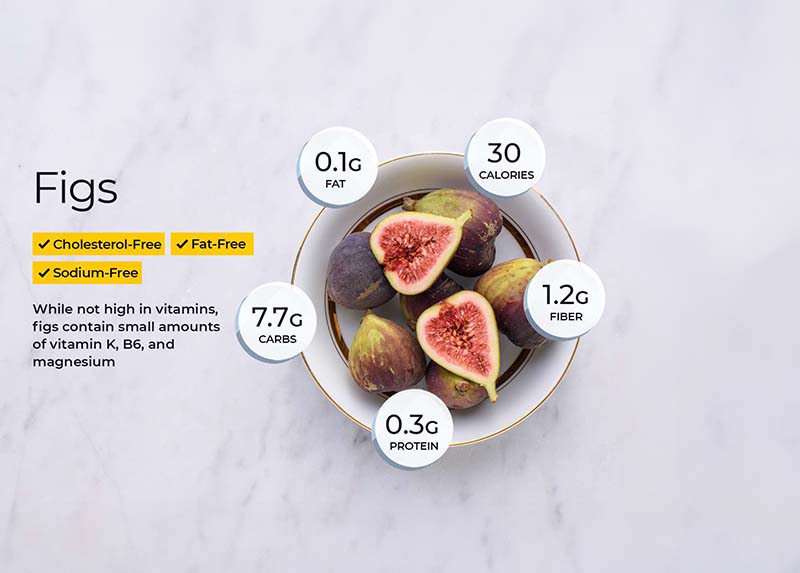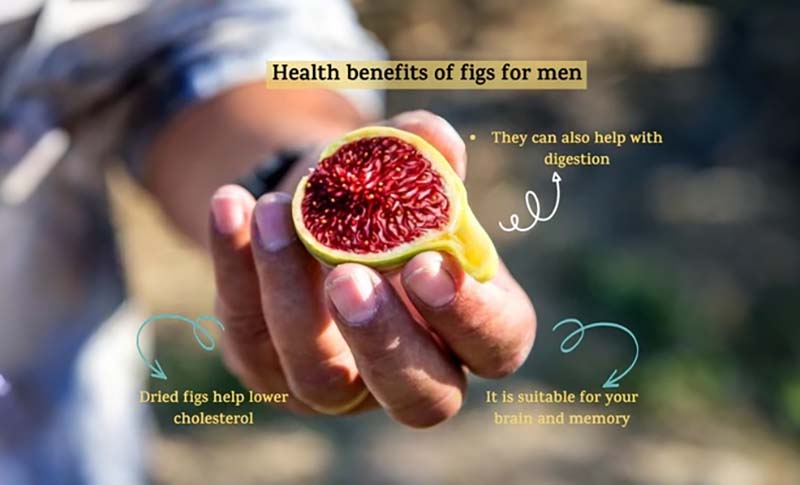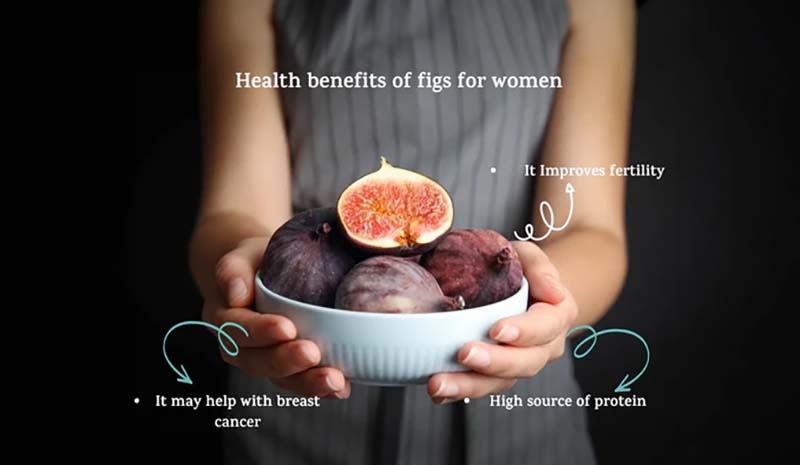Exploring the benefits of figs reveals their significant role in promoting health, especially in terms of aiding digestion and supplying vital nutrients.
In answering the question, ‘Are figs healthy for weight loss?’, it’s crucial to recognize their role in a balanced diet. Figs are not only nutritious but also beneficial for weight management.
Related articles
- Is A Banana Diet Effective For Weight Loss?.
- Does Kale Help You Lose Weight? Unraveling the Truth.
- Does Oatmeal Help with Weight Loss? Unveiling the Truth.

Are Figs Good for Weight Loss?
Indeed. Figs are a fantastic fruit for anyone trying to lose weight because they’re low in fat. They’re also packed with fiber, which helps stop constipation and keeps you feeling full for a longer time.
Tip: It’s important to eat figs in moderation because they have a lot of natural sugar. Mix them with other healthy, low-calorie foods for a balanced approach to losing weight.

Nutritional Value of Figs
In a 100g serving of raw figs, you’ll find a nutritional profile that’s both impressive and beneficial for health. Here’s what’s inside:
- Calories: 74 kcal
- Protein: 0.75 g
- Fat: 0.3 g
- Carbohydrates: 19.2 g
- Dietary Fiber: 2.6 g
- Calcium: 35 mg
- Magnesium: 17 mg
- Phosphorous: 14 mg
- Vitamin C: 2 mg
- Folate: 6 µg
- Vitamin K: 4.7 µg
- Beta Carotene: 85 µg
- Vitamin A: 142 IU
This nutritional profile underscores figs as a powerhouse of essential vitamins and minerals, all while being low in calories. They are a great choice for anyone looking to enrich their diet with natural, health-boosting ingredients. However, it’s important to consume them in moderation due to their sugar content.

Health Benefits of Figs
Figs are renowned for their extensive health benefits, contributing significantly to a balanced diet by enhancing digestive health and providing essential nutrients. Here’s a closer examination of their impressive benefits:
Aids in Alleviating Constipation
Figs have long been recognized as a natural remedy for constipation, thanks to their high soluble fiber content. They function as a natural laxative, easing the bowel process. For effective relief, try consuming 2 to 3 dry figs on an empty stomach.

Potential Blood Pressure Regulation
With the rise in fast-food consumption, high blood pressure has become a common issue, often leading to an imbalance of potassium levels in the body. Figs, being rich in potassium, can naturally help improve these levels and may aid in regulating blood pressure.

Enhances Digestive Well-being
As an excellent source of prebiotics, figs support the function of probiotics, improving digestion and overall gut health. Their fiber content also helps in adding bulk to the stool, promoting regular bowel movements.

Figs for Fertility Support
Since ancient Greek times, figs have been symbolized as a fruit of love and fertility. This is supported by their high iron content, which is crucial in the ovulation process for females and impacts sperm quality and motility in males. Figs are often consumed with milk to enhance reproductive health.
May Contribute to Improved Heart Health
The high fiber and potassium content in figs aid in removing excess fat from the body and reducing strain on the heart, potentially enhancing heart health. Additionally, their antioxidant properties help in reducing free radicals and lowering triglycerides and bad cholesterol, leading to a stronger and healthier heart.
Additional Health Advantages of Figs
Figs, nature’s sweet nectar-packed treasures, offer a range of additional health benefits that are worth considering.
Figs Benefits for Men
Figs are incredibly beneficial for male sexual health, thanks to their rich content of essential minerals like zinc and magnesium. These minerals are crucial for reproductive functions, including sperm production and fertility.
Moreover, the amino acids in figs enhance libido and sexual stamina. By adding figs to their diet, men can not only enjoy general health benefits but also specific advantages in promoting sexual well-being.

Figs Benefits for Women
Figs are invaluable for women’s health at various life stages. During pregnancy, their high iron content helps in preventing anemia, benefiting both mother and baby. The fiber in figs eases common pregnancy-related digestive issues.
Additionally, the combination of essential vitamins and minerals in figs supports women’s sexual health and overall vitality. Their potassium content is key for heart health, crucial for maintaining good circulation and reproductive well-being.
Including figs in the diet offers a tasty and healthy option for women, whether for pregnancy support or enhancing sexual health.

Figs Benefits for Skin Health
An older study in the International Journal of Dermatology highlighted the potential of fig tree latex in treating common warts.
In this study, fig tree latex was applied to one side of the body of participants with warts, while cryotherapy was used on the other side.
The study found that fig tree latex completely resolved warts in 44% of participants, showcasing its potential as a safe and easy-to-use treatment option with minimal side effects.

Figs Benefits for Hair Health
Figs are great for hair health due to their essential nutrients like vitamins C, E, and biotin. These contribute to hair strength and growth, promoting a healthy scalp. Antioxidants in figs help combat free radicals, reducing hair damage and the risk of premature graying.
The natural moisture in figs prevents dryness and promotes hair hydration. Including figs in your diet can support healthy, lustrous hair.
Figs Benefits During Pregnancy
Figs are highly beneficial during pregnancy, being rich in vital nutrients like folate, which is essential for fetal development and preventing neural tube defects. Their high fiber content aids healthy digestion, a common concern during pregnancy.
Figs also provide a natural source of iron, crucial for the increased blood production demands of pregnancy, and their potassium content helps regulate blood pressure, contributing to a healthier pregnancy experience. Including figs in a balanced diet is a nutritious choice for expectant mothers.
Potential Downsides of Figs
When adding figs to your diet, it’s good to know about some risks that can depend on how you use them. Let’s break it down:
- Medication Interactions: Figs, both fresh and dried, have a lot of vitamin K. This matters for people who take blood-thinner medicines like warfarin, because they need to keep their vitamin K intake steady. So, they might need to eat fewer figs or avoid them.
- Digestive Symptoms: Figs are full of fiber, which is usually great. But eating too many, especially dried figs, can cause diarrhea because of all that fiber.
- Allergies: Some people might be allergic to figs. For instance, a study in Vienna found that many people who are allergic to birch pollen also have reactions to fresh figs. About 78% of people in the study with a birch pollen allergy reacted to fresh figs, but most of them were okay with dried figs.
Tip: If you’re thinking about eating figs but are worried about allergies or how they might affect your medicines, it’s a good idea to talk to a doctor. And if you’re not used to eating a lot of fiber, start with a small amount of figs to avoid stomach trouble. Remember, eating anything in moderation is the best way to enjoy its benefits without too many risks.
Conclusion
Figs are beneficial for weight management, answering the question ‘Are figs healthy for weight loss?’ positively. Rich in nutrients and fiber, they are a good choice for a weight-conscious diet when consumed in moderation.
Please feel free to share them in the comments section. It’s always inspiring to hear how different foods impact our health journeys. Readers are encouraged to share their fig-related weight loss experiences and explore further health and wellness content from HealthConnect.

Dr. Joyce Slater: Your Guide to Informed Health Choices
Dr. Joyce Slater shines as a distinguished expert in the field of nutrition and public health. Contributing her vast expertise to HealthConnectbc, she embodies a deep-seated passion for enhancing public well-being. As a respected figure in her field. Dr. Slater’s academic journey and professional achievements are nothing short of inspirational.
Holding a significant position as a researcher and educator, Dr. Slater has delved deeply into the intricacies of food literacy and nutritional science. Her work, prominently featured in numerous esteemed scientific publications, underscores her dedication to expanding our understanding of food’s role in health and society.
At the heart of Dr. Slater’s professional ethos is a profound desire to positively impact individual lives through education and research. She often says, “Empowering people with the knowledge to make healthier choices is the most rewarding aspect of my work.” This principle is the cornerstone of her involvement with HealthConnectbc, where she strives to provide reliable and practical health advice.
Dr. Slater’s contributions to HealthConnectbc are multifaceted: academically, she offers insights into the complex world of nutrition and health, enhancing both public understanding and professional practices. Additionally, she is instrumental in guiding and inspiring the next generation of health professionals, thus fostering future excellence in the field.
Juggling rigorous research with her educational duties, Dr. Slater demonstrates an unwavering commitment to her profession. Her approachable nature and genuine concern transcend the confines of academia, touching the lives of everyone she interacts with. Dr. Slater looks forward to continuing her journey of discovery and education, dedicated to the ongoing improvement of public health and nutrition.
At HealthConnectbc, Dr. J. Slater is not just a contributor; she is a guiding light, dedicated to enlightening and motivating individuals towards a healthier and more informed lifestyle.
PUBLISHED ARTICLES
- Food literacy competencies: A conceptual framework for youth transitioning to adulthood (2018)
- Self-perceived eating habits and food skills of Canadians (2016)
- Challenges to acquiring and utilizing food literacy: Perceptions of young Canadian adults (2016)
- Socio-demographic and geographic analysis of overweight and obesity in Canadian adults (2009)
- Sustainable well-being: Concepts, issues, and educational practices (2014)

